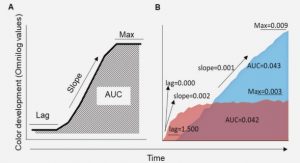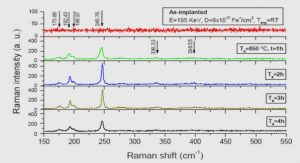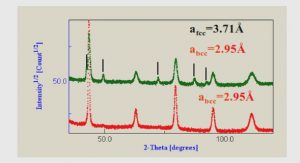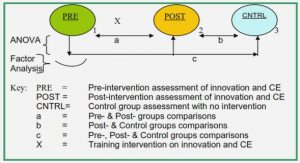Get Complete Project Material File(s) Now! »
Backward translation
The validated French translation was backward translated by two linguists and compared to the original English version to check for errors.
4 significant differences were identified, and prompted some new discussion with the 2 linguists:
_in the Item 1 of the WAI-SR patient: « comment je pourrais être capable de changer » was translated by « how I might be able to make changes to my lifestyle ». The addition of « to my lifestyle » was unexpected. The original English is « how I might be able to change ».
After discussion with the linguists, it was concluded that the change simply originated from a difference in writing style and that the French translation was therefore an accurate translation of the original English version.
_in the Item 7 of the WAI-SR patient: « m’estime » was translated by « respects me ». The original english is « appreciates me ».
After discussion with the linguist, it was concluded that the difference was due to cultural differences and that the French translation was therefore an accurate translation of the original English version.
_in the Item 10 of the WAI-SR patient: « les choses que je fais au cours de cette prise en charge » was translated by « the things I do as a result of these consultations ». The original English is « the things I do in therapy », and seems to refer to actions happening during the care and not as a result of it.
Strengths and limitations of the study:
There was no information bias in this study, as the information was transmitted and collected by the exact same way with all the participants (by email messages). The members of the expert panel had no communication with each other, to avoid the influence of a dominant opinion. There was no confusion bias but the possibility of a misunderstanding of the English by some of the experts with an intermediate or basic level. This bias was limited by the backward translation. A selection bias may be present, as suggested by the analysis of the sampling data: the majority of the participants were male (73%) and were working in a group practice (86.67%). All of them also had teaching and research activity. The diversity of their working environment was real (53.33% worked in an urban setting, the others in a rural or semi-rural setting).
The use of the Delphi technique is widely recognized as valid to obtain consensus in health sciences. It enhances individual judgment by combining multiples opinions and experiences in an independent way (26). The French medical professionals also recognize it as a valid technique to reach consensus (29).
This study followed the recommendations of proper methodology for the Delphi technique according to the literature (28). The panel size was appropriate with 15 participants. There was no loss to follow up. The translation was validated in its entirety in 2 rounds, which is viewed as the optimal number of rounds.
Implications for practice, medical training and future research:
This translation of the WAI-SR in the French language will be useful for future research in the subject of the therapeutic alliance. Both French (1, 16) and English authors (3) remark a lack of research about the way the working alliance vary over time during the process of care. They argue that we should move away for a linear representation of the therapeutic alliance, and that that it is not sufficient to know the strength of the alliance at a static point in time, but that information about the trajectory of the alliance is critical to best predict treatment outcome. The WAI-SR, being a short and easy to use scale, could be used for repeated measures over time to better grasp the fluctuation of the therapeutic alliance. This is particularly relevant because data suggest that patient outcome vary depending on the pattern followed by the alliance for chronic care (3). The influence of rupture in the alliance is another theme where research is needed, both in the English (3) and French-speaking world (16). French authors also note a lack of research about the effect of the therapeutic alliance in the somatic fields (1). French psychiatrist recently explored the relation between the therapeutic alliance and the different psychological defense mechanisms (17). A valid and easy to use scale could be of use to explore these themes. This study is part of the larger TATA study, which is currently translating the WAI-SR in multiples European languages. A cultural check will follow, to verify that these translations are harmonized and have no major differences. This will allow for the study of therapeutic alliance on a European scale.
Table of contents :
Abstract
Introduction
Materials and Methods
Results
Sampling data for the initial translation group
Sampling data for the expert panel
First Delphi round
Second Delphi round
Backward translation
WAI-SR Patient
WAI-SR Therapist
WAI-SR Scoring Sheet
Discussion
Main result
Strengths and limitations of the Study
Implications for practice, medical training and future research
Conclusion
Bibliography






